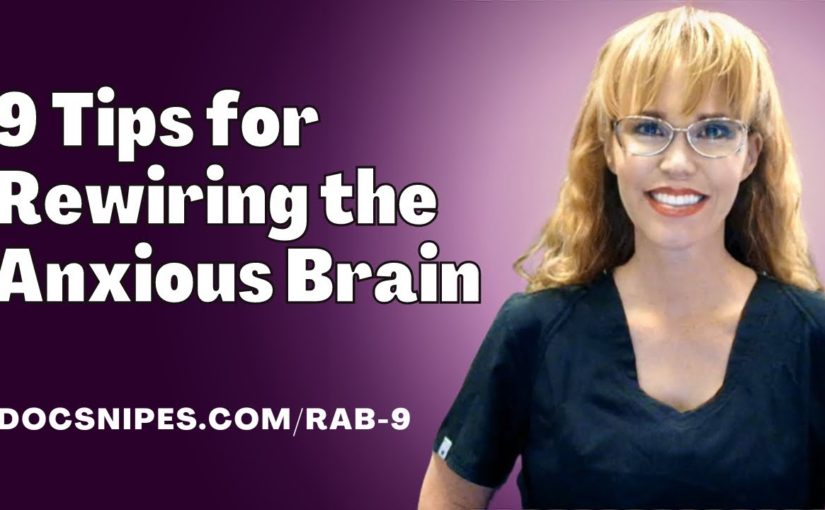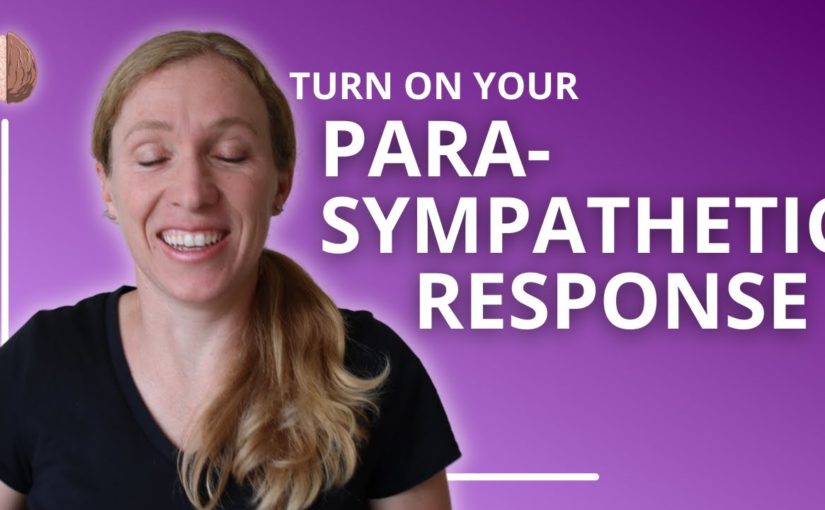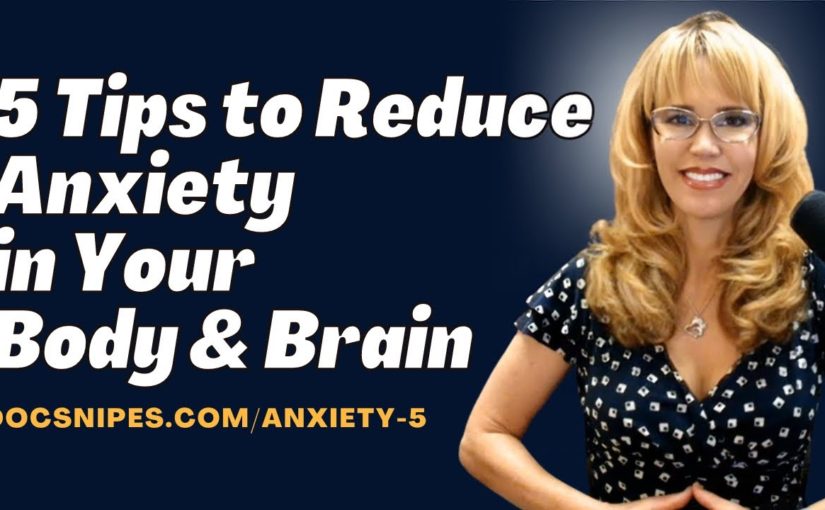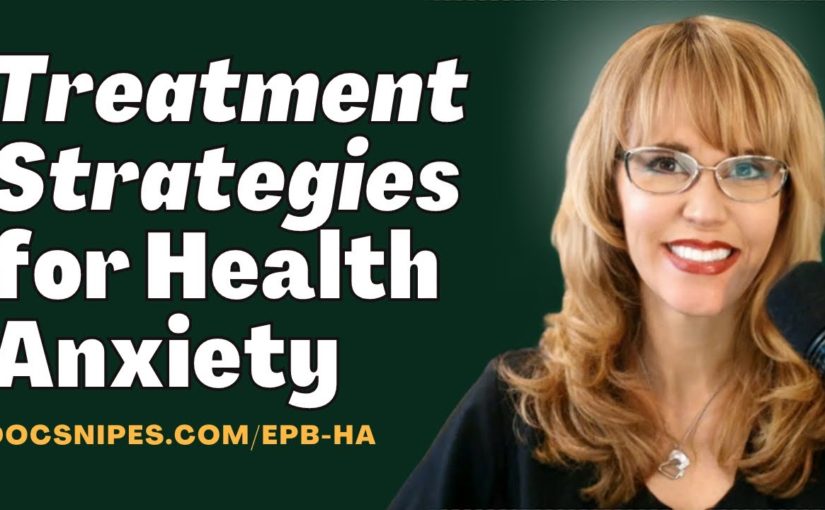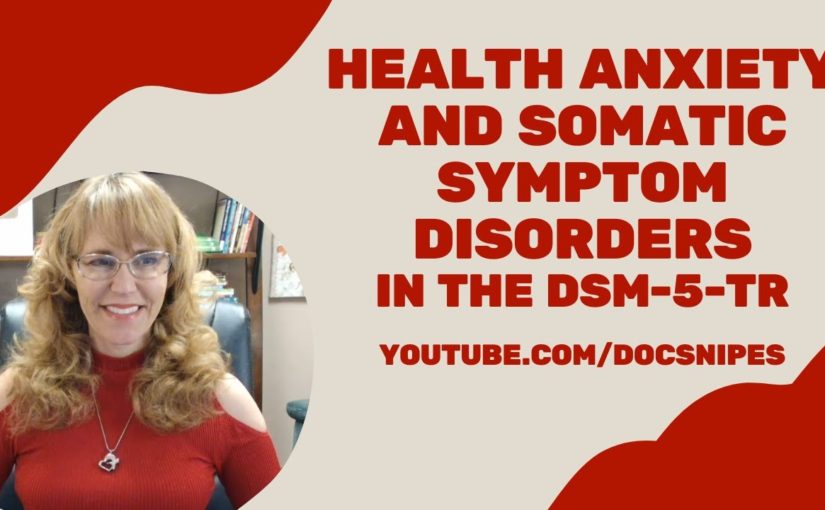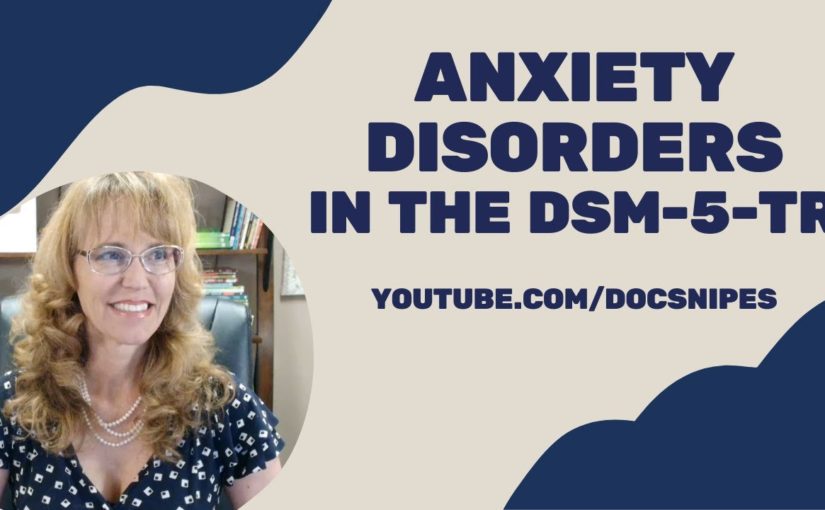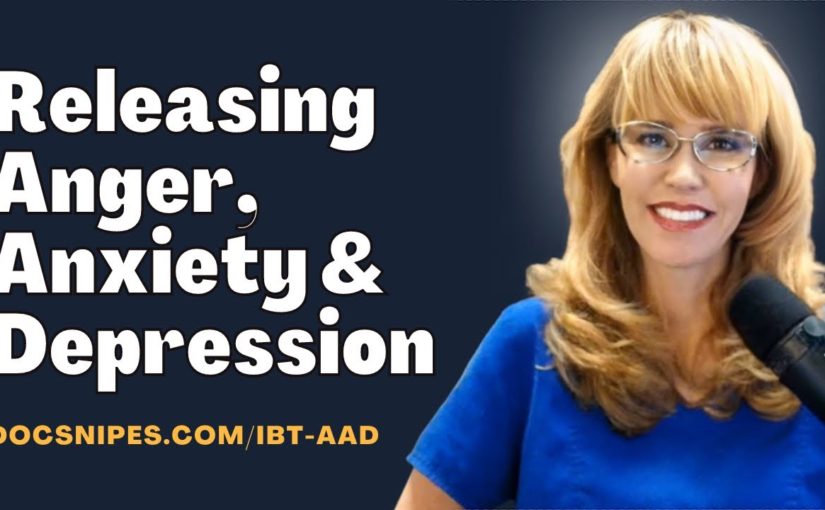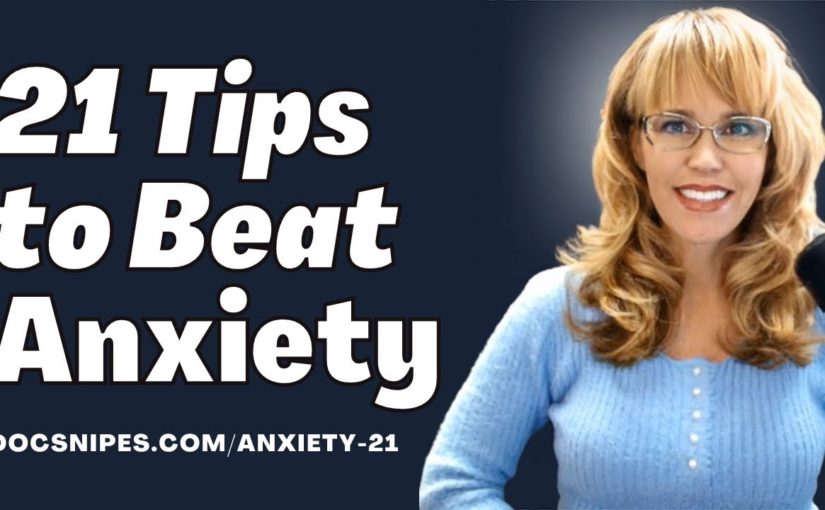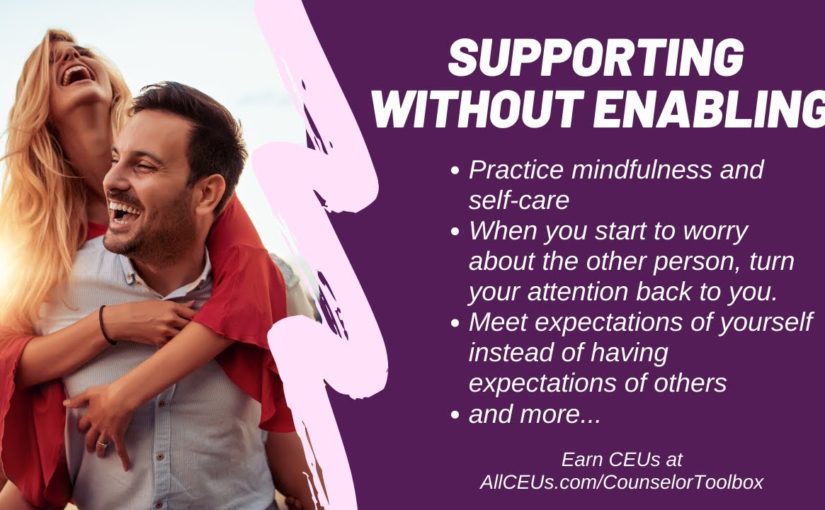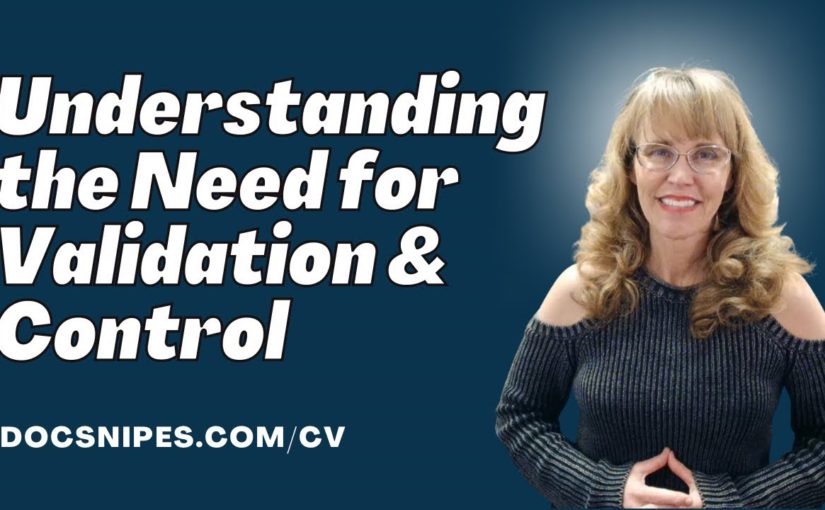https://www.youtube.com/watch?v=SHksvBpVSkk
Unlimited CEUs are available for $59 at AllCEUs.com/Anxiety-CEU hey there everybody and welcome to this presentation on nine tips to rewire your anxious brain i’m your host dr dawn elise snipes in this presentation we’re going to start by 00:00:13
understanding a little bit more about what anxiety is then we’ll talk about the influence of experience and the stress response and we’ll finish up by identifying those rewiring strategies anxiety is an emotional label we apply to a particular set of physical reactions
00:00:35
like rapid breathing and increased heart rate that can be triggered by a variety of things phys physical stress like exercise can trigger the hpa axis which is our stress response system threat can also trigger the hpa axis our cognitions or our thoughts can also
00:00:59
trigger this physiological reaction if we tell ourselves there’s a impending danger then it’s going to trigger that fight-or-flight reaction relationship dynamics are another example of something that can trigger a stress response if someone starts interacting with you in a way
00:01:23
that reminds you of an unpleasant interaction in the past it’ll trigger that memory and your brain may respond with activating that stress response system anxiety is an emotion it is there to help protect us the fight-or-flight system the anger and anxiety are designed to give us energy to
00:01:50
tell us that there might be a threat not that there is a threat so this fight or flight system is designed to help us survive it’s designed like a fire alarm to alert us to the fact that there might be a problem and i know i already said that but it bears repeating anxiety is a feeling which
00:02:14
may or may not be based on accurate facts feelings are not facts feelings tell us to check the facts when you experience something that causes anxiety your brain encodes it as a threat so think about if you are walking down the street and an aggressive dog just runs up to the fence and
00:02:39
starts barking like crazy well if that’s your first experience with a dog or if you felt too threatened then your brain is going to encode that and it’s going to make it really prominent high winds are another example that i’ll use throughout this presentation we live on a farm
00:02:58
and we’ve had occasions where the winds have gotten so high that is not that it has knocked down significant portions of our fence which not only is inconvenient but it means the animals can escape and it is not a cheap endeavor in order to repair the fence so whenever we have high winds
00:03:22
there’s a part of me that may get a little bit anxious that oh my gosh i hope it doesn’t blow down the fence so we’ll talk about how i’ve dealt with that over the years it’s important to remember that in order to protect us your brain gives more weight or
00:03:39
more prominently displays information about threats so instead of remembering the 15 nice dogs that you’ve met in your life it’s going to remind you of that one aggressive dog or instead of remembering the 50 times that we had a storm come through that there was no damage my
00:04:02
brain as soon as the wind starts picking up goes to that one time well actually three times but whatever those few times that the fence blew down so probability is that nothing bad is going to happen but my brain focuses on those distressful events because it’s trying to keep me safe
00:04:28
when your brain perceives a threat based on prior experience or lack of experience so if you’ve never encountered a situation many times that’s going to trigger a feeling of anxiety in you because your brain’s like i’ve got no data i don’t know what to expect
00:04:46
so it could be bad it could be good but let’s just err on the side of caution and be a little anxious so it triggers the hpa axis which causes your body to drop dump adrenaline we know that that’s stimulating norepinephrine and glutamate those are also stimulating and all of those things um work
00:05:07
together as well as uh your thyroid causing blood sugar to be dumped into the system to create that feeling of anxiety when we are anxious when our fight-or-flight system has kicked off i mentioned earlier our heart rate increases our breathing increases our gi tract says you know
00:05:33
it’s not the time to rest and digest so let’s clear out the system so a lot of times we get stomach cramps or an uncomfortable feeling in our belly all of that is just a normal reaction to our body getting prepared in case we need to fight or flee but we assume that since we’re
00:05:57
feeling that way then there must be a problem and we’ll talk about emotional reasoning in a minute when we have this physical reaction we start feeling anxious thoughts about our ability to keep ourselves safe and to cope with the situation
00:06:15
can really affect whether it spirals and gets worse into a panic attack or we’re able to cope with it so if we start feeling anxious and we believe that oh my gosh i’m feeling anxious this is going to be out of control i’m going to feel overwhelmed i’m powerless over these feelings
00:06:36
then we’re going to have increased anxiety which is going to cause more adrenaline more glutamate more blood sugar to be dumped because our our body’s going ooh there must be a big problem if our feel thoughts on the other hand are that of safety curiosity and empowerment
00:06:56
i’m looking around i recognize that i’m pretty safe and i think i can handle whatever life throws at me okay so let me get curious i wonder why i’m feeling pinky right now i wonder why i’m feeling anxious right now so let me explore it so i can figure out how to handle it that’s the
00:07:16
empowerment part well when we approach a situation like that then it promotes functional responding we can assess the situation accurately and decide is this something i need to address or can i turn on that rest and digest and down regulate my stress response
00:07:41
all right easier said than done so when we talk about rewiring the brain it’s important to start out with mindfulness and i know we talk about mindfulness a lot but it’s so important when you’re on autopilot then your brain is just pulling from data that it already has
00:07:59
and not taking into account anything in the present mindfulness encourages us to become aware of things we become mindful of what i call our pacer triggers for anxiety that means our physical triggers for anxiety when i feel a particular way for example if you’ve
00:08:19
got health anxiety then maybe if you have start having pain that triggers anxiety in you okay write it down what other physical sensations may trigger anxiety in you maybe when your blood sugar starts to get low you start to get really shaky and you can’t necessarily differentiate that from
00:08:43
a panic attack so you assume that if you’re shaky it must mean a panic attack so write down shaky that’s a trigger for anxiety um some people tend to be more anxious in certain situations when they have certain feelings if they feel angry that also may trigger their anxiety in other
00:09:08
videos we’ve talked about that as dirty discomfort because we rarely have one isolated feeling so if we get angry we may feel anxious that people are going to get angry with us because we got angry or if we feel depressed it may trigger our anxiety that we’re never going to feel any better
00:09:30
so what feelings what affects trigger your anxiety and then cognitive what thoughts trigger your anxiety when you’re having an anxious moment what are you telling yourself and sometimes you may not be aware of these right now so the first part of rewiring your brain is starting
00:09:51
to become mindful and become aware when i’m feeling anxious what am i telling myself when i’m feeling anxious what in the environment might be triggering my anxiety in the book the body keeps the score but um vessel vander kulk talks about how a lot of times when
00:10:13
we’ve experienced trauma we may re-experience it not as a thought so much as a reaction so if there are stimuli in the environment sites smart smells sounds in the environment that remind you of a past trauma it may trigger your anxiety and you may have that anxious
00:10:36
reaction and you don’t know where it’s coming from it’s like oh i really don’t like how i’m feeling and i don’t know why i’m feeling anxiety i’m looking around and objectively everything’s fine so it’ll be important to be aware of triggers in your environment and start becoming aware of
00:10:54
things that trigger reactions from the past so you can process that and recognize in the present are you safe and and not even necessarily related to trauma i remember one of the places i worked was the walls were kind of this pukey blue green color and it felt very institutional and it felt very
00:11:26
depressing and overly rigid and it felt uncomfortable to be in there and i couldn’t exactly tell you why and to this day i can’t exactly tell you why that color paint and the um environment in that particular building triggered that
00:11:48
feeling but it did and i recognized that when i started when i see that color it triggers a emotional reaction in me it’s not anxiety but people may have similar reactions when they see particular colors or environments and relationally what people
00:12:10
or interpersonal behaviors trigger anxiety in you maybe particular people that you’ve interacted with may trigger anxiety but also people that look like those people can trigger anxiety in you and it’s important to note that it could be that they look physically like that person
00:12:33
or it could be that they are in a similar role so maybe all doctors trigger your anxiety it’s important as you become more aware of your triggers to also encourage yourself to open your mind and become aware of facts in context in the present moment
00:12:56
so i notice that when i’m in this environment i feel icky facts in context in the present moment is there something going on that is distressful or is it triggering a reaction from the past you know there are two completely different things
00:13:21
another important step is what i call reducing stress sensitivity if your body machine is hyperactive hyper vigilant then you may tend to respond with anxiety more easily or more strongly than if it’s not so what can we do in order to create a sense of safety and empowerment
00:13:48
well part of it is sleep when you are sleep deprived your hpa axis becomes more active which means and remember your hpa axis is your stress response system when that system is more active then you are more likely to respond with more anxiety
00:14:07
think about it when you’re sleep deprived is it just as easy to deal with life on life’s terms or do things stress you out more easily i mean i think most of us have the answer there good quality sleep is important also with that recognize some of your natural rhythms in the
00:14:28
morning there is the cortisol awakening response and that is when your cortisol your stress hormone and other uh hormones as well as your blood sugar tend to be high your body is saying hey wake up get ready for the day that is your body’s um awakening response it’s not anxiety it’s
00:14:52
not designed to make you feel stressed out it’s designed theoretically to make you feel excited but sometimes we label it differently sometimes our system is overly eager and it secretes too much cortisol and it’s important to to take a look at that
00:15:13
so if you wake up in the morning and the first thing is you feel anxious get curious examine what thoughts am i having that are contributing to this anxiety what physical sensations did i not sleep well you know what might be contributing to this besides
00:15:31
something that’s actually threatening so sleep is important pain management is important when we’re in pain that triggers that stress response system to stay more active the primitive parts of our brain say hey if we’re in pain that means we’re vulnerable which means we are in more danger
00:15:55
from that hungry lion that might be chasing us manage pain you may not be able to eliminate it completely but be aware that pain may increase your anxiety just because it triggers the hpa axis pain may also trigger your anxiety because of health anxiety and that’s a different video
00:16:17
but being aware of that and managing your pain can be helpful nutrition is important if you’re eating a lot of simple sugars then your blood sugar is doing this and that can contribute to feelings of anxiety and jitteriness same thing with if
00:16:36
you drink a lot of coffee you can have surges and crashes that can feel uh very anxiety like getting enough protein throughout the day to keep your blood sugar stable can be really really helpful and paying attention to insulin resistance is also important uh
00:16:59
when we become more insulin resistant than our body has more difficulty managing our blood sugar to grossly oversimplify it some people have found that dietary changes can help with their anxiety additionally making sure that you’re getting
00:17:21
a relatively healthy diet so your body can make the neuro chemicals it needs to like gaba in order to moderate your anxiety can be important and then reducing minimizing eliminating if possible stimulants if you’re already anxious then adding stimulants is just turning up the volume of that
00:17:47
stress response system it’s giving it more energy environmentally create safety in your environment in your house in your car in your workspace so you’re not hyper vigilant so you’re not on edge a lot of the time turn down any unnecessary sources of distress and develop a safety plan to
00:18:13
identify aspects within your control to respond to common threats if x happens then i will so going back to the aggressive dog if the aggressive dog charges me i will respond with pepper spray you know maybe i have pepper spray that keeps me safe when i’m on my when when i’m on my runs
00:18:37
or if we get a bad storm and it does blow the fence down then i will call my neighbor and i have t posts that i can use in order to put the fence back up so i have a plan that helps me feel safer so i know that if this bad thing happens i’m not saying that it will but if it happens
00:19:02
i can cope with it it’s not going to have catastrophic consequences many people with anxiety get caught in the emotional reasoning trap i feel anxious therefore something bad must be getting ready to happen emotional reasoning
00:19:21
causes you to seek out and focus on information that confirms your feelings it’s not necessarily confirming the facts it confirms your feelings and it dismisses contradictory information if you wake up and you’re having feeling anxious and you say oh something bad’s going to happen today it’s
00:19:43
it’s going to be an awful day then you’re going to pay attention and you’re going to notice the bad things that happen and you’re not going to pay attention or notice as as much of the good things another example i feel anxious about this test therefore i am going to fail so the person starts
00:20:05
looking for confirmatory information they’re taking the test and every time they get to a question they don’t know they’re just like see i knew i was going to fail and they can actually create a confirmation bias they tell themselves enough that they’re going to fail that they
00:20:24
actually do fail or i feel vulnerable and anxious in this relationship therefore this person must intend to abandon me so i feel anxious maybe based on prior abandonment experiences therefore i’m going to look for any clue anything this person may do that may indicate that they’re
00:20:48
getting ready to abandon me now i don’t know for certain whether that’s what their behavior actually means but i’m assuming based on other people’s behaviors that that that’s what’s going on here so there’s we’re not talking about facts we’re talking about assumptions
00:21:10
examine your relationship with anxiety and i know that sounds really weird but anxiety is there to protect you think about how it has protected you in the past and in what ways is this current anxiety maybe
00:21:28
dysfunctional but trying to protect you in in the present you know it’s sort of that um hyperactive or overprotective uh friend that wants to make sure that you stay safe how are you different now than you were in the past what was dangerous or overwhelming or
00:21:50
whatever in the past uh things that caused you anxiety in the past how are you different how can you handle them differently how are you safer and more empowered or how is the situation different now in the past than in the past maybe in past situations people that you dealt with were unkind
00:22:12
or caused you distress in some way how are these people in the present different than those people sometimes that people find it helpful to treat anxiety like a nervous friend think of piglet from winnie the pooh and set good boundaries if your nervous friend tells you that there might
00:22:36
be a problem and they’re really anxious about something okay thank you for alerting me i’ll check it out just because they feel anxious doesn’t mean you need to take the information thank them for letting you know and then figure out for yourself what you
00:22:54
think and what your perception of the situation is then be willing to explain to them why they don’t need to be anxious in your perception or why you don’t feel like you need to be anxious so thank you for letting me know however these are the actual facts in the situation as i see them
00:23:15
how are you safe and empowered if they persist if your your anxious friend persists in saying no you need to be anxious you need to be anxious you can also set boundaries and tell them to go home you know and that’s where those cognitive boundaries come in if you treat anxiety as something separate
00:23:36
from you as a person or an entity separate from you then you can more easily set boundaries it’s hard to set boundaries with yourself sometimes consider what are you afraid will happen if you don’t dwell on anxiety all the time if you’re not constantly scanning for the
00:23:58
next shoe to drop what are you afraid will happen think back to times when you haven’t been anxious moments hours even not necessarily days or weeks but moments or hours when you haven’t been anxious has something bad happened a lot of people are afraid if they let go of their anxiety
00:24:21
then they’re going to be caught unawares by something bad but think about it times when you haven’t been hyper vigilant over anxious when you’ve actually felt calm for a moment did something bad happen and catch you unawares a lot of times you’re going to be able to say no
00:24:46
so rewiring the brain develop distress tolerance tools for emotional regulation when you are in your fight-or-flight mode your cognition is impaired you’re not going to be able to effectively evaluate the situation and alter
00:25:08
your your brain’s shortcuts alter your brain’s understanding of the situation when you’re in fight or flight your brain is focused on just that fight or flee not let’s check it out in order to get into the place where you can effectively evaluate what’s going on and potentially
00:25:30
rewire what’s going on you need to be able to get into what linehan called your wise mind using distress tolerance tools like distress tolerant thoughts telling yourself that you won’t be consumed by anxiety or that you are able to handle this situation
00:25:53
activities like slow breathing breathe in for four hold for four exhale for four hold for four so that’s what we call square breathing or engaging in relaxation activities or even exercise i know that’s the opposite but sometimes when your fight or flight system is revved and dumping
00:26:17
energy some people find that the best way to manage that is to actually start moving their body in sync with their heart so if their heart is beating fast then they start moving and then when they stop moving their heart naturally decreases they kind of get it recalibrated or re-synced
00:26:39
between their their physiological reaction and what their body is doing guided imagery can be helpful as well as sensations like sounds and smells and even things that you feel like splashing cold water on your face and i have lots of videos on distress
00:26:58
tolerance tools on the youtube channel so i’m not going to go into that a lot here but it’s important to find tools that work for you so you can get into your wise mind and engage in using some of the following tools
00:27:15
when you’re confronted with a stressful situation and you manually override your stress response you use those distress tolerance schools tools then your brain actually says hmm wonder what’s going on here i guess maybe i might not need to be nervous
00:27:34
about this i’m not sure you manually override it you get into your wise mind you can start adjusting the beliefs and your brain also associates that anxiety formerly anxiety provoking situation with low amounts of physiological distress
00:27:59
fcp is another technique that i really like once you’re into your wise mind examine the facts in the present context i feel anxious okay that’s a fact i’m mindfully aware that i feel anxious what thoughts are contributing to my
00:28:19
feeling of anxiety what are the facts for and against those thoughts in this context at this time not when i was eight not last week not three weeks from now but right now in this context at this time what are the facts for and against my belief that there is a threat
00:28:42
what else might be contributing to my feeling of anxiety did i have a little too much coffee in the past few hours is my blood sugar low am i under chronic stress so you know i already was like that pressure cooker that was at max capacity and this one thing that
00:29:03
came at me normally wouldn’t bother me but it’s just i don’t know how to deal with it i don’t know that i have any more energy to deal with it so i feel overwhelmed and i feel anxious or as i mentioned earlier are there sensory triggers around me right now that might be
00:29:22
contributing to my feeling of anxiety there’s no actual facts there’s no actual threat in the environment but there’s sensory stimuli that are triggering reactions based on prior experiences c stands for what’s within your control we’ve already evaluated the facts we’ve
00:29:47
identified what may be contributing to what’s going on and if there’s a threat what’s within your control what can you do to address the situation and if you do what’s within your control if you do what you’re empowered to do what is the
00:30:04
probability of the worst case scenario what is the probability that catastrophe is going to happen i have teenagers older children now and one example can be letting them go out and drive by themselves when they go out in the car by themselves i feel anxious yes i do what thoughts
00:30:28
are contributing to it they could get into a wreck what are the facts for and against those thoughts they have a license they are in a safe vehicle so even if they do get into a wreck it’s probably not going to be catastrophic my daughter is a very good driver and
00:30:53
she’s been driving for years and never had an accident so therefore um what are the facts supporting my feeling my anxiety you know it do i have information that says yeah it’s pretty likely that she’s going to get into into an accident no i don’t have that information so what is within
00:31:19
my control with her driving with the exception of taking away her keys not a lot therefore uh i have to rely on her being smart and i cannot control other drivers and i cannot control her when she is out driving i did my best leading up to this to make sure that she was a safe driver
00:31:45
and and again what is the probability of the worst case scenario the probability of her getting into a catastrophic car accident probably pretty small she doesn’t drive on the interstates uh we live in a very small town so there’s not a
00:31:59
whole lot of traffic you know probability of the worst case scenario is pretty slim another technique that can help in rewiring is rewriting cognitions or your thoughts in your core beliefs and i emphasize re-write and rethinking about it is one thing but if you
00:32:25
actually hand write it not type it hand write it it solidifies the new memory or the restructured memory in a different way than if you just think it or even if you type it or talk about it when you start feeling anxious write down what you’re thinking
00:32:50
and then write down a restructured version or a more accurate version of what you’re thinking um all or nothing thinking this happens every time every time there’s a storm the fence blows down every time i get into a relationship i get abandoned those are all or nothing thoughts
00:33:16
so what are the exceptions write down the exceptions to the rule um mental filtering and that is when you focus only on the negative so again you want to look for the positives i’m always getting in trouble at work or at school or my child is always getting in trouble at school
00:33:40
look for the exceptions okay maybe they’ve gotten in trouble a lot but not always so what’s different during the times when they’re not getting in trouble personalization you know people don’t like me because i’m a bad person or people are going to abandon me
00:34:02
because i’m not lovable what are some alternate explanations you know maybe it’s because they’ve got stuff going on now that doesn’t necessarily mean you’re not going to get abandoned by a person but if you personalize it if you think it’s about you then you expect that henceforth
00:34:25
and forevermore everybody’s going to abandon you because you’re the one that’s not lovable if you look at the big picture find alternate explanations why something may have happened yes it’s unfortunate and you’ve got to grieve that loss but you can also recognize
00:34:45
that that doesn’t always have to happen magnification of the negative or minimization of the positive look at the facts assuming or jumping to conclusions without all of the information or mind reading get the facts you don’t know what somebody’s thinking if you’re anxious if
00:35:07
you feel anxious that somebody’s angry with you instead of assuming that you’re interpreting their nonverbals correctly or their mood correctly and it’s about you ask them get the facts and availability is another thing that contributes to anxiety we tend to remember and
00:35:32
react based on the things that are either most recent or most emotionally charged so plane crashes for example we hear about plane crashes on the news and those are devastating those are very emotionally charged when we hear about it we feel awful for those people and we
00:35:54
may empathize and think how awful it would be to be in that plane crash we don’t think about the 20 000 flights that took off that day that landed successfully so it’s important to get the facts if you start thinking flying is dangerous what are the facts how many planes actually crash um
00:36:17
driving you know how many cars actually crash how many people you know actually have problems it’s important to if there’s something that’s making you anxious if there’s something you’re afraid of get all of the facts about it snakes for example you know when i was growing up a lot of people
00:36:41
talked about how snakes were dangerous and in my mind that’s all i heard snakes are dangerous therefore all snakes must be dangerous and that’s a false premise when i started doing the research i learned that yes there are six snakes in tennessee
00:37:01
that are dangerous but there are literally hundreds of other species that are not so looking at the availability of information i needed to broaden my awareness of the whole picture not just the sliver of information that i was presented
00:37:23
rewiring and retraining can also be done through experience the first step is to be willing to be open to the experience and challenge our inaccurate beliefs which means i’ve got to be able to look at the snake or whatever it is that’s causing me anxiety use my distress tolerance
00:37:42
skills to get into my wise mind and then examine the accuracy of my facts in the current context data collection can also be helpful write it down again handwrite whenever possible how often does this actually happen how likely is it to happen
00:38:06
does it happen literally every single time so start keeping notes for the storms i started keeping notes how frequently do we have storms and how frequently during those storms does my fence get blown down and the preponderance of the time it didn’t happen uh
00:38:32
so it’s important to get data to understand how often does this happen versus how often does it feel like it happens what are other possible outcomes and how often do they happen so let’s take relationships and abandonment for example move away from the fence
00:38:54
how what are other possible outcomes i get into a relationship and it works out how often does that happen when how often does it happen that people get into not necessarily just me that other people get into
00:39:10
relationships that they get abandoned that other people get into relationships and it works out it’s important to recognize that how frequently you could expect something to happen and how accurate are your expectations
00:39:31
do you expect a gale-force wind and it’s only a gentle breeze do you expect to fail a test and okay you get a b minus what were your expectations going into it rewiring can also be done through guided imagery envision yourself successfully navigating
00:39:56
a concern that that you’re having going to the doctor or asking somebody out on a date or your kid going out driving and coming home safely envision the positive scenario envision the positive solution envision prior times when you’ve experienced something similar and it’s gone okay
00:40:20
remind yourself of other times when it’s gone okay see that happening and repetition repeating to yourself the distress tolerant thoughts and those more accurate cognitions are really helpful at reducing anxiety so instead of saying everybody is dangerous or nobody is trustworthy
00:40:45
repeating to yourself that some people are untrustworthy and some people are trustworthy repetition repeating it to yourself over and over again and stopping using the um extreme or thoughts or the thoughts with the cognitive distortions that trigger your anxiety
00:41:12
can help you approach a situation and feel more in control and empowered your brain learns from experience and uses those experiences to help you predict the future information from past experiences often only provides part of the picture that is what happened
00:41:33
in the past it doesn’t take into consideration what’s going on right now when in fight or flight cognition is impaired and prior information is often unable to be modified to include new data so if you expect something to be distressful and you maintain your anxiety even if the situation
00:41:54
ended up being no big deal your brain isn’t going to process that because you were in that anxiety haze if you will rewiring the brain requires learning tools to calm the stress response then identifying new information that may help you feel safer more empowered that’s based in
00:42:20
facts in the present context integrating that new information training the brain to have new expectations i’ve mentioned in other videos that when i was very very little i had a bad experience with a nurse giving me a shot and from then on i was terrified of needles and i talked about
00:42:47
it with my doctor one time when i was much much older and she said i’m gonna give you the shot trust me it’s not going to hurt and every fiber of my being said oh she’s lying but i did trust her and i was willing to be open to a new experience and sure enough she gave
00:43:11
me the shot and it didn’t hurt so now i go into the doctor’s office different doctor now um and i don’t automatically expect it to be painful or distressful because i know that it i can get shots without having it be be awful so i’ve trained my brain to have new expectations
00:43:37
now there are certain phlebotomists for example that you may go to and you may know from experience that they have difficulty finding a vein so your anxiety may go up when you see that particular phlebotomist whereas if you see a different one who gets the vein every time
00:44:01
you may not have any anxiety at all and in that way you’ve trained your brain to be more selective and not expect that every time you get your blood drawn it’s going to be a painful situation the brain’s desire for survival may cause it to cling to the distressful expectations
00:44:22
until it is proven wrong multiple times you can’t just have this fear and then have an experience that contradicts that fear and your brain goes oh i was wrong never mind your brain’s automatic response is to say maybe that was just an exception let’s see if it happens
00:44:44
again and so it may take several repetitions of something several times experiencing something or doing something like get public speaking or asking somebody out on a date before it doesn’t trigger the extreme anxiety response so it takes practice what you want to look for
00:45:07
is a reduction in the intensity of the anxiety each time you repeat it now see if you feel it feels a little bit easier each time i hope this has given you a few tools to consider exploring in rewiring your brain basically what you’re trying to do is reprogram your brain by providing it
Source : Youtube
